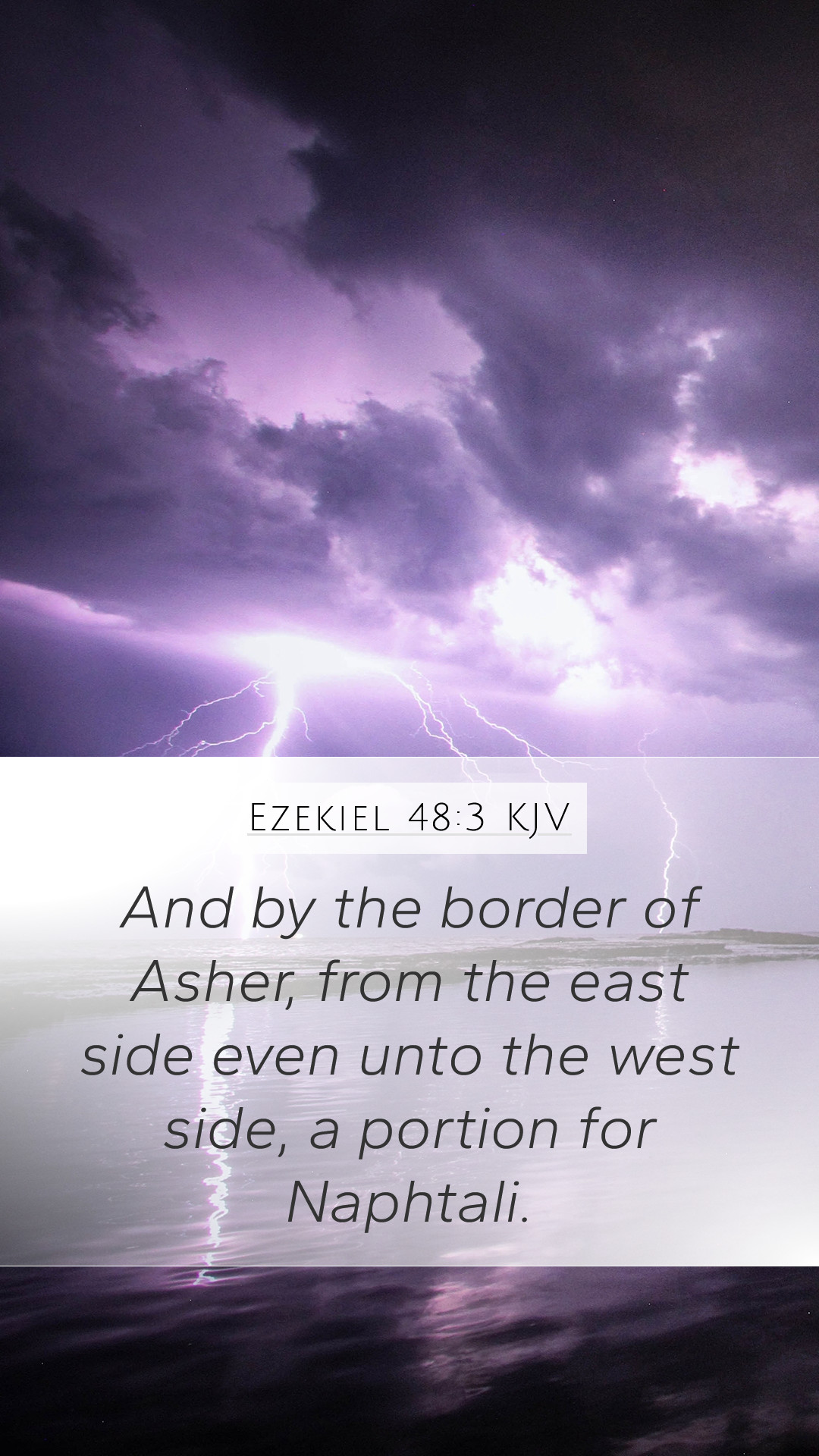Bible Verse Interpretation: Ezekiel 48:3
Verse Reference: Ezekiel 48:3 - "And by the border of the tribe of the children of Judah, toward the east side shall be the offering that ye shall offer of five and twenty thousand reeds in length, and ten thousand in breadth: it shall be holy in all the borders thereof round about."
Understanding the Verse
This verse is part of Ezekiel’s vision regarding the division of the land for the tribes of Israel, particularly focusing on the allocations designated for the tribe of Judah. The measurements given signify a specific area that is to be treated as holy and set apart for God’s purposes, indicating the holiness and importance of the land assigned to this tribe.
Commentary Insights
The interpretations of Ezekiel 48:3 can be observed through the lenses of significant biblical commentators:
-
Matthew Henry:
Henry suggests that this specific allocation of land to Judah emphasizes the tribe’s importance in Israel’s history and future. The land's sanctity reflects God's promise and covenant with His people, and the meticulous measurements denote God's order and design in providing for His chosen nation.
-
Albert Barnes:
Barnes points out that the division of land symbolizes the spiritual inheritance for believers today, illustrating both God’s provision and the significance of territorial and communal identity within the tribe. The reference to the land as 'holy' also serves as a reminder to the Israelites of their separation from other nations and their unique relationship with God.
-
Adam Clarke:
Clarke elaborates on the geographical and historical details surrounding the tribe of Judah and its borders. He notes the strategic importance of Judah, as it included Jerusalem, the seat of worship, highlighting that any offering made within this sacred space holds greater spiritual significance as it represents access to God.
Spiritual Significance
The allocation of land to Judah in Ezekiel 48:3 extends beyond its physical boundaries; it speaks of spiritual themes such as:
- Holiness: The land is described as “holy,” underscoring the concept of separation from the secular for divine purposes.
- Identity: The verse reflects the identity of Judah as a leader among the tribes and a pivotal part of Israel’s future, symbolizing strength and leadership.
- Promise: It serves as a reminder of God’s promises to His people and the faithfulness with which He fulfills those promises.
Application of the Verse
In applying Ezekiel 48:3 to our lives today, we can reflect on several key areas:
- Recognizing God’s Provision: Just as God provided for the tribes of Israel, we are reminded to trust in His provision for our spiritual and physical needs.
- Maintaining Holiness: We are encouraged to live lives set apart for God, recognizing that our spaces—whether physical or metaphorical—can be sanctified for His purposes.
- Understanding Our Identity: The reminder of our identity in Christ can guide us to live with purpose and intent, aligned with Biblical teachings.
Related Bible Verses
This verse is closely related to several other biblical passages that enrich its understanding:
- Joshua 14:1-2 - Discusses the distribution of land among the tribes of Israel.
- Revelation 21:12 - Describes the new Jerusalem and the gates named after the tribes of Israel, including Judah.
- Ezekiel 37:11-14 - Features God’s promise of restoration for Israel.
Conclusion
Ezekiel 48:3 serves as a profound reminder of God's covenant with His people, reflecting themes of holiness, identity, and divine provision. By examining various commentaries, we gain deeper insight into not only the historical context but also the spiritual implications that continue to resonate with believers today.
Studying this verse through Bible study groups or online Bible study can further enhance our understanding, allowing us to explore these themes in greater detail with fellow believers.


